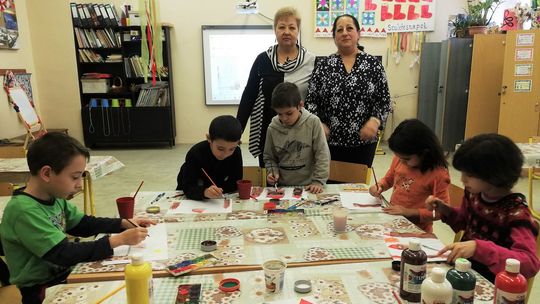Ondrej Ferko leads the Devjatkakare čhave choir, with almost 40 children from the Luník IX housing estate in Košice. They performed during the Pope’s visit to Slovakia and in the television competition Czechoslovakia has talent. “In three years, we have destroyed stereotypes for other educators, who thought that nothing could be done with these children. And we also destroyed the children’s self-doubt,” says Ferko.
At the beginning, Milan Dulina, director of the Ľ Elementary School, also joined the work. Together with choirmaster Ferko, they explain, among other things, how they work with promising singers and also how artistic training has changed the results of children at school.
Ferko added “Roma children are not born knowing how to sing well, it takes a lot of hard work”.
- Zbormajster z Luníka IX: Rómske deti sa nerodia s tým, že vedia pekne spievať, je za tým kopec driny. In: Dennik N. 03.02.2023. https://dennikn.sk/3221756/zbormajster-z-lunika-ix-romske-deti-sa-nerodia-s-tym-ze-vedia-pekne-spievat-je-za-tym-kopec-driny/
